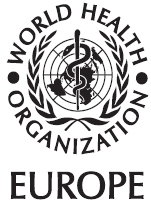Tisztelt Látogató!
E dokumentum archivált tartalom, amely elavult, nem hatályos információkat is tartalmazhat. Kérjük, hogy a dokumentumra való hivatkozást megelőzően az ÁNTSZ központi (www.antsz.hu), valamint az országos intézetek honlapjainak aktuális tartalmakat megjelenítő oldalain szíveskedjen tájékozódni.
WHO welcomes proposal for legislation for a smoke-free Hungary - Az Egészségügyi Világszervezet Európai Irodájának angol nyelvű közleménye

Budapest, Copenhagen, February 28, 2010
On Friday 25 February 2011, a group of MPs of the Hungarian Parliament, with government support submitted a motion for legislation that would make public places, restaurants, bars and workplaces in Hungary smoke-free. Debate on this proposal starts in Parliament today, 28 February 2011. WHO Regional Office for Europe welcomes this initiative.
“This is very good news for the health of the people of Hungary. Countries across the European Region are introducing smoke-free public places and workplaces, and the evidence is that it really works”, said Zsuzsanna Jakab, WHO Regional Director for Europe. “Not only does it have a major impact on the amount of smoke that people are exposed to, and their health, but people have accepted it. It has met with public support and positive impacts on business”
Smoke-free initiatives are strongly supported by the WHO Framework Convention on Tobacco Control, which 45 countries in the European Region have ratified so far. Governments are finding that the health gains hugely outweigh the perceived political costs of taking action, and one country after another is introducing tough legislation to combat smoking.
Tobacco is the leading risk factor for premature mortality in the European Region, causing about 1.6 million deaths a year. WHO is committed to reducing the global burden of disease and death caused by tobacco, protecting present and future generations from the devastating health, social, environmental and economic consequences of tobacco consumption and exposure to tobacco smoke.
Experience of other countries
Two countries illustrate the experiences of the many countries who have taken action.
England, United Kingdom: Smoke-free legislation welcomed by both the public and business
England introduced new laws in 2007 to make virtually all enclosed public places and workplaces in England smoke-free. It brought dramatic improvements. The air quality in pubs moved from being rated as “unhealthy” to levels that are comparable to outdoor air. Non-smoking bar workers, who were inhaling 4-6 times more cigarette smoke than the average non-smoking adult, could breathe cleaner air at work. As for the public, local Stop Smoking services have experienced over 20% increased demand as smokers have benefited from the more supportive environment to quit smoking.
Compliance with smoke-free legislation in the UK has been consistently high from the very beginning. 98% of all premises and vehicles inspected between July 2007 and March 2008 were smoke-free, complying with the requirements of the law. 87% of all premises and vehicles are displaying the correct no-smoking signage.
Good enforcement is partially a result of large public support, including by businesses themselves. The general public and businesses support the smoke free law and have quickly adapted to its requirements, with 76% of people supporting the smoke free law and 70% of people considering that creating smoke free environments has had a positive effect on the health of people in England; 81% of business decision makers think the law is ‘a good idea’ and 87% of businesses said implementation of the law had gone well or very well, indeed 40% of businesses even reported a positive impact on the company. Only 3% reported a negative impact.
2) Turkey: Positive impact on business
Turkey went smoke- free in two phases, starting in 19 May 2008 in work places and public places and going fully smoke-free on 19 July 2009 including restaurants, bars, cafés and teahouses. This has brought dramatic improvements. A group of studies have shown the impact of smoke-free implementation to the ambient air quality.
An overwhelming majority of Turks (92%) favour the law that prohibits smoking in most indoor places and workplaces. Additionally, 77% of daily smokers favour the law: 79% say they either go out more often or have not changed their dining habits since the law went into effect. Turks support the government’s work to reduce tobacco use by trying to prevent young people from starting to smoke and helping current smokers who want to quit.
Going smoke-free did not have any negative impact on the hospitality sector in Turkey – on the contrary. Based on the records of the Central Bank of Turkey, while the Gross National Product was reduced by 3.3% between 2008 and 2009, the income of hospitality workplaces, such as restaurants and bars, increased by 5.2% during the same period. Furthermore, the number of hospitality workplaces increased by 2.7% between the beginning and end of 2009. This increase was 3.5% in food sector workplaces, and 3.0% in workplaces serving alcoholic drinks. Also, the amount of VAT collected and transferred by hospitality industry workplaces increased by more than 20% between January to October in the year 2009.
For more information, please contact:
Ms Viv Taylor Gee
Communications Adviser, WHO/Europe
Tel.: +45 39 17 12 31, +45 22 72 36 91 (mobile)
E-mail: vge@euro.who.int
Dr Zsofia Pusztai
WHO Country Office, Hungary
Tel.: +36 1 3216080
E-mail: pusztaiz@who.int









